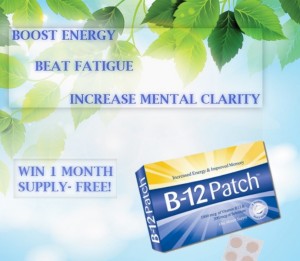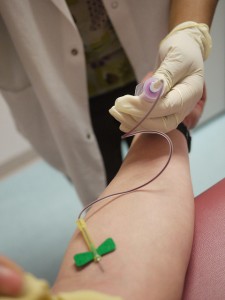One of the most debilitating symptoms of vitamin B12 deficiency is the persistent brain fog. Memory loss, disorientation, and general sluggish thinking make it almost impossible to remember where we put things or places we need to be. Here are some tips to help you cope with memory loss and vitamin B12 deficiency.
Memory loss with B12 deficiency
We’re too young for dementia. So, why is it so difficult sometimes to remember words that used to roll off our tongues, or summon names of familiar people and places?
Sometimes, cognitive problems indicate a severe vitamin B12 deficiency. Memory loss, in particular, is one of the earliest symptoms of vitamin B12 deficiency, which also causes other cognitive ailments such as extreme fatigue, confusion, decreased attention skills, and learning disorders.
But I’m too Young for Memory Loss…Right?
To improve your memory for things like passwords, lost items, important dates, and basic vocabulary, it’s important to make sure you’re getting enough vitamin B12 into your blood supply. Ask your doctor for a blood screening for vitamin B12 deficiency.
If diagnosed with low vitamin B12, you may need to add more B12-rich foods in your diet, such as beef liver, fish, or shellfish.
Or, if you are a vegan, or if you are unable to digest dietary vitamin B12, then you may need to take synthetic vitamin B12 injections, in addition to extra non-prescription vitamin B12 supplements, in order to relieve symptoms such as memory loss, brain fog, fatigue, and painful tingling and numbness in the extremities.
Can’t Concentrate? Attention Deficit Disorder and Vitamin B12 Deficiency
Tips for managing memory loss
The following helpful tips and tricks will help you keep track of things like appointments and important passwords, while you work on getting your B12 levels back to normal.
1- Keep lots of notes. Don’t be shy about setting yourself lots of reminders, even for things that you don’t think you’ll forget. Write down a grocery list, and keep a running tally of things you need. Keep notes in places where you can’t miss them, like tacked onto the computer screen, stuck to the refrigerator, or sitting by your alarm clock.
2- Use a day planner. Keep track of your schedule on a calendar, and use it religiously. Take advantage of the many helpful calendar apps that are available for your iPad or smartphone. Use it to keep track of vitamin B12 supplementation, to-do lists, and pick-up times.
3- De-clutter. Streamline your work area, and try to keep all surfaces tidy. Clutter makes it difficult to think clearly and even harder to find things that are probably sitting right in front of your face!
Let the FlyLady show you how to clear your mind and clutter at the same time! Available on Amazon.
4- De-stress. Anxiety makes it hard for us to sleep well or think properly. Stress also fuels guilt and depression, which in turn make it difficult for us to manage our emotions. For less stress, learn how to prioritize your schedule. You’ll be able to remember the things that matter most if you don’t plan too many activities in one day.
5- Ask for help. If you think you might forget to show up at somebody’s party, don’t be too embarrassed to ask for a reminder. After all, which is more mortifying: missing an important deadline, or asking
Your turn!
Do you have any other tips for dealing with memory loss?
Do you have any questions or suggestions? Please leave your comments below.
Share with your friends!
If you found this article helpful, then please share with your friends, family, and coworkers by email, Facebook, or Google+.
Like this? Read more:
7 Reasons You Have Brain Fog…And What to do About It
Image(s) courtesy of Stuart Miles/FreeDigitalPhotos.net












